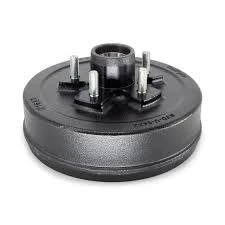
-
 Afrikaans
Afrikaans -
 Albanian
Albanian -
 Amharic
Amharic -
 Arabic
Arabic -
 Armenian
Armenian -
 Azerbaijani
Azerbaijani -
 Basque
Basque -
 Belarusian
Belarusian -
 Bengali
Bengali -
 Bosnian
Bosnian -
 Bulgarian
Bulgarian -
 Catalan
Catalan -
 Cebuano
Cebuano -
 Corsican
Corsican -
 Croatian
Croatian -
 Czech
Czech -
 Danish
Danish -
 Dutch
Dutch -
 English
English -
 Esperanto
Esperanto -
 Estonian
Estonian -
 Finnish
Finnish -
 French
French -
 Frisian
Frisian -
 Galician
Galician -
 Georgian
Georgian -
 German
German -
 Greek
Greek -
 Gujarati
Gujarati -
 Haitian Creole
Haitian Creole -
 hausa
hausa -
 hawaiian
hawaiian -
 Hebrew
Hebrew -
 Hindi
Hindi -
 Miao
Miao -
 Hungarian
Hungarian -
 Icelandic
Icelandic -
 igbo
igbo -
 Indonesian
Indonesian -
 irish
irish -
 Italian
Italian -
 Japanese
Japanese -
 Javanese
Javanese -
 Kannada
Kannada -
 kazakh
kazakh -
 Khmer
Khmer -
 Rwandese
Rwandese -
 Korean
Korean -
 Kurdish
Kurdish -
 Kyrgyz
Kyrgyz -
 Lao
Lao -
 Latin
Latin -
 Latvian
Latvian -
 Lithuanian
Lithuanian -
 Luxembourgish
Luxembourgish -
 Macedonian
Macedonian -
 Malgashi
Malgashi -
 Malay
Malay -
 Malayalam
Malayalam -
 Maltese
Maltese -
 Maori
Maori -
 Marathi
Marathi -
 Mongolian
Mongolian -
 Myanmar
Myanmar -
 Nepali
Nepali -
 Norwegian
Norwegian -
 Norwegian
Norwegian -
 Occitan
Occitan -
 Pashto
Pashto -
 Persian
Persian -
 Polish
Polish -
 Portuguese
Portuguese -
 Punjabi
Punjabi -
 Romanian
Romanian -
 Russian
Russian -
 Samoan
Samoan -
 Scottish Gaelic
Scottish Gaelic -
 Serbian
Serbian -
 Sesotho
Sesotho -
 Shona
Shona -
 Sindhi
Sindhi -
 Sinhala
Sinhala -
 Slovak
Slovak -
 Slovenian
Slovenian -
 Somali
Somali -
 Spanish
Spanish -
 Sundanese
Sundanese -
 Swahili
Swahili -
 Swedish
Swedish -
 Tagalog
Tagalog -
 Tajik
Tajik -
 Tamil
Tamil -
 Tatar
Tatar -
 Telugu
Telugu -
 Thai
Thai -
 Turkish
Turkish -
 Turkmen
Turkmen -
 Ukrainian
Ukrainian -
 Urdu
Urdu -
 Uighur
Uighur -
 Uzbek
Uzbek -
 Vietnamese
Vietnamese -
 Welsh
Welsh -
 Bantu
Bantu -
 Yiddish
Yiddish -
 Yoruba
Yoruba -
 Zulu
Zulu
Causes of Noisy Drum Brakes When Slowing Down and How to Fix Them
Understanding Drum Brakes Causes of Noise When Stopping
Drum brakes are a vital component of many vehicles, providing effective braking power. However, drivers often report issues such as noise coming from their drum brakes when applying the brakes. These sounds can range from a slight squeal to a loud grinding, and understanding their causes can help ensure vehicle safety and performance.
The Basics of Drum Brakes
Drum brakes operate through a simple yet effective mechanism. When you press the brake pedal, hydraulic fluid activates the brake shoes to press against the inner surface of a drum attached to the wheel. This friction slows down the wheel, bringing the vehicle to a stop. While drum brakes are generally durable, they can produce noise under certain conditions.
Common Causes of Noise
1. Worn Brake Shoes One of the primary reasons for noise when stopping is worn brake shoes. Over time, the friction material wears down, and if it becomes too thin, it can start to make contact with the metal drum. This can cause a squealing or grinding sound, signaling the need for replacement.
2. Moisture and Debris Rain or washing the vehicle can leave water or debris inside the drum. When the brakes are applied, this moisture can create noise as the brake shoes make contact with the damp surface. Similarly, dirt and dust can interfere with normal operation and cause squeaking sounds when braking.
3. Improper Adjustment Drum brakes require proper adjustment to function effectively. If the brake shoes are not positioned correctly, they may not make full contact with the drum, leading to uneven wear and noise. Regular maintenance and adjustment can help prevent this issue.
drum brakes making noise when stopping

4. Lack of Lubrication Moving parts within the drum brake system, such as the adjuster and spring mechanisms, require lubrication to operate smoothly. If these components are dry, they can produce a clicking or rattling sound when brakes are applied. Regular inspection and lubrication can mitigate this issue.
5. Glazed Brake Shoes or Drums Overheating can cause the brake shoes or drum surface to become glazed, resulting in a hard, shiny finish. This can reduce friction and lead to poor braking performance, as well as noise. If glazing occurs, the affected components will need to be resurfaced or replaced.
6. Faulty Wheel Cylinders The wheel cylinders in a drum brake system push the brake shoes outward against the drum. If these cylinders fail, it may lead to inconsistent braking, prompting noise when stopping as one shoe may engage before the other.
Addressing the Noise
To effectively address noise issues from drum brakes, it's essential to identify the cause accurately. If you notice unusual sounds when braking, the best course of action is to schedule a professional inspection. A qualified mechanic can assess the condition of the brake shoes, drums, and associated components to determine if repairs or replacements are necessary.
In addition, regular maintenance is crucial for preventing noise and ensuring optimal performance. This includes inspecting the braking system for wear, adjusting the brakes, and keeping components lubricated.
Conclusion
While drum brakes are a reliable braking solution, they can produce noise when stopping for various reasons, from worn brake shoes to moisture buildup. By understanding the underlying causes of these noises, drivers can take proactive steps to address and resolve the issues, ultimately leading to a safer and quieter driving experience. Regular maintenance and timely interventions are key to ensuring that drum brakes function effectively, allowing you to stop confidently on the road.
-
What Are Drum BrakesNewsJul.07,2025
-
Understanding Brake Drum MaterialNewsJul.07,2025
-
Semi-Trailer Brake Drum: A Key Component for Extreme Loads and Long-Distance TransportNewsJul.07,2025
-
Drum Brake Pads for SaleNewsJul.07,2025
-
Brake Drums for SaleNewsJul.07,2025
-
Brake Drum ManufacturerNewsJul.07,2025
-
Aluminum Brake Drums: The Future of High-Performance CarsNewsJul.07,2025
